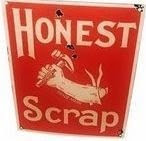NATURE COSMOLOGY
David Abram, Becoming Animal: An Earthly Cosmology.
Richard Louv, Last Child in the Woods.
Derrick Jensen, Endgame.
—–, A Language Older Than Words.
Jay Griffiths, Wild: An Elemental Journey.
John Berger, Ways of Seeing.
* * *
PHILOSOPHICAL WRITINGS ON NATURE
William Wordsworth (1770 – 1850) is often considered the nature poet of English literature and beneath his poetry philosophical tenets abound with his consistent Lake Country musings. See Lyrical Ballads (1798).
Ralph Waldo Emerson, essay on “Nature” (1836).
Henry David Thoreau, Walden or Life in the Woods (1854).
Louis Bromfield, Pleasant Valley (1945).
Aldo Leopold, Sand County Almanac (1949).
Loren Eiseley, The Immense Journey (1957).
Annie Dillard, Pilgrim at Tinker Creek (1974), Holy the Firm (1977).
* * *
HISTORIES OF THE ENVIRONMENT
From Leonard Pitt, We Americans: A Topical History of the United States, Glenview, Illinois: Scott, Foresman and Company, 1976. Pitt’s book has a bibliographic section. Here are books and references he lists for environment and nature. All annotations are Pitt’s unless otherwise stipulated. Since this short list was compiled, thirty-four years have passed so that additional references will be added. Also to be noted is that these works are primarily histories on the environment, not philosophical writings on nature such as Walden or Pilgrim at Tinker Creek. I used Pitt’s We Americans as a required history text for many years in my surveys of American history.
BEGINNINGS TO 1789:
Roderick Nash, Wilderness and the American Mind, Yale U. Press, 1973. See also his edited book of documents, The American Environment: Readings in the History of Conservation. See bibliography with document book.
Stewart L. Udall, The Quiet Crisis (1964).
Perry Miller, Errand into the Wilderness (1956), has an interesting chapter on the colonial view of nature.
A NEW NATION, 1789-1865
Hans Huth, Nature and the American: Three Centuries of Changing Attitudes (1972).
Willam R. Van Dersal, The American Land (1943).
Frederick A. Sweet, The Hudson River School and the Early American Landscape Tradition (1945).
Henry Nash Smith, Virgin Land: The American West as Symbol and Myth (1957).
Harold McCracken, George Catlin and the Old Frontier (1939). Nation’s early attention to environmental problems.
Paul R. Cutright, Lewis and Clark: Pioneering Naturalists (1969).
AN INDUSTRIAL NATION, 1865-1918
Department of Interior, Highlights in the History of Forest and Related Natural Resource Conservation, Bulletin 41, revised.
Wallace Stegner, Beyond the Hundredth Meridian (1954). A biography of John Wesley Powell.
PROSPERITY, DEPRESSION, WAR, 1918-1945
Richard Highsmith, et. al., Conservation in the United States (1969). Wide coverage, bibliographic essay. This is the basic book on resource management.
Donald Swain, Federal Conservation Policy 1921-1933 (1963). Conservation before the New Deal.
Morris R. Werner and John Starr, Teapot Dome (1959).
Richard Lowitt, George W. Norris: The Making of a Progressive, 1861-1912 (1963). Biography of father of T.V.A.
John H. Kyle, The Building of T.V.A. (1958).
John A. Salmond, Civilian Conservation Corps, 1933-1942 (1967).
Wellington Brink, Big Hugh: The Father of Soil Conservation (1951). Biography of Hugh Hammond Bennett.
Marion Clawson and R. Burnell Held, Federal Lands: Their Use and Management (1957).
OUR TIMES, SINCE 1945
Rachel Carson, The Silent Spring (1973).
Paul Brooks, The House of Life: Rachel Carson at Work (1974).
Paul R. Erlich, The Population Bomb (1971).
Barry Commoner, The Closing Circle (1972). Describes the interaction of technology and biological processes.
Eugene P. Odum, et. al., The Crisis of Survival (1970)
* * *
Related Articles
- Nicolai Fechin: Art and the (A)rtist (ktarini.wordpress.com)
- Sex and the River Styx named an Amazon.com “Best Book of the Month” (chelseagreen.com)
















Surfing the waves of the web I am pleasantly stranded in this beautiful blog.
I write under the pseudonym of Josè Pascal (a descendant of the great Colonel Aureliano Buendía).
I invite you to visit my italian writing blog http://parolesemplici.wordpress.com/mytinbox/. I define this blog “In parole Semplici” as a “virtuacultural tin” box where they are guarded thoughts, memories, images, sounds, and simple stories. ”
If you want to participate and to have more informations send me a letter to inparolesempli@gmail.com
Good life and I hope to soon
Josè
Thanks for stopping by. I went by your blog and it’s quite a writer’s blog in Italy. I’ll drop by again.
I found your site after Googling I long ago lost ….. while revisiting some of my English literature papers from university in Canada countless years ago. I am impressed with the quality of this site and the expressed thinking. I am retired, age 75 living in a small hamlet on the coast of Victoria in Australia. Can you tell me more about it?